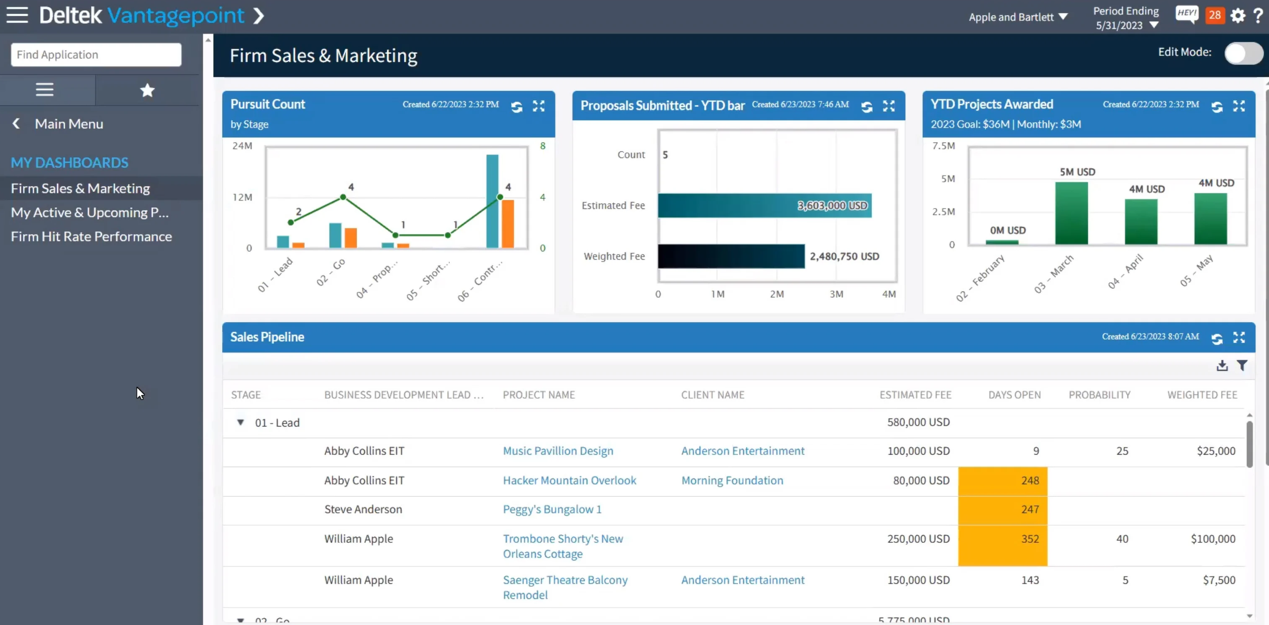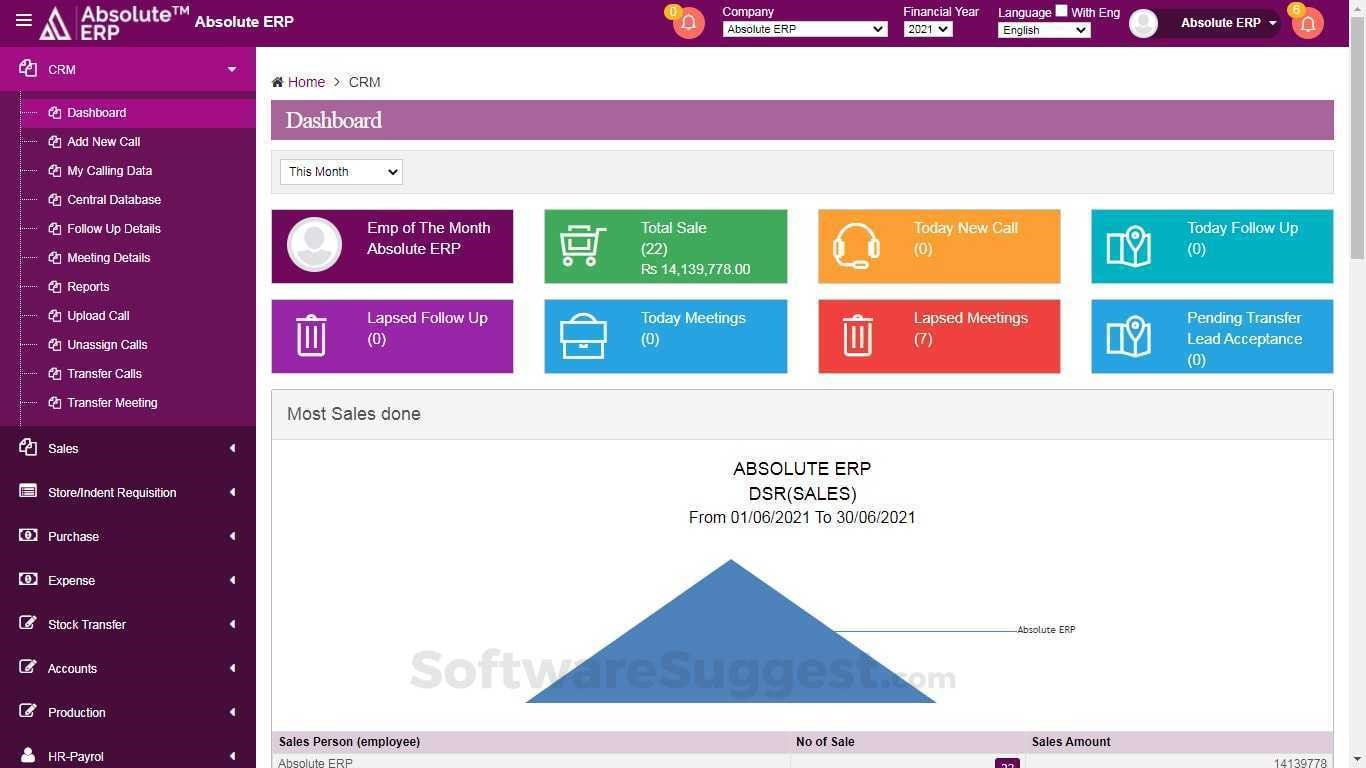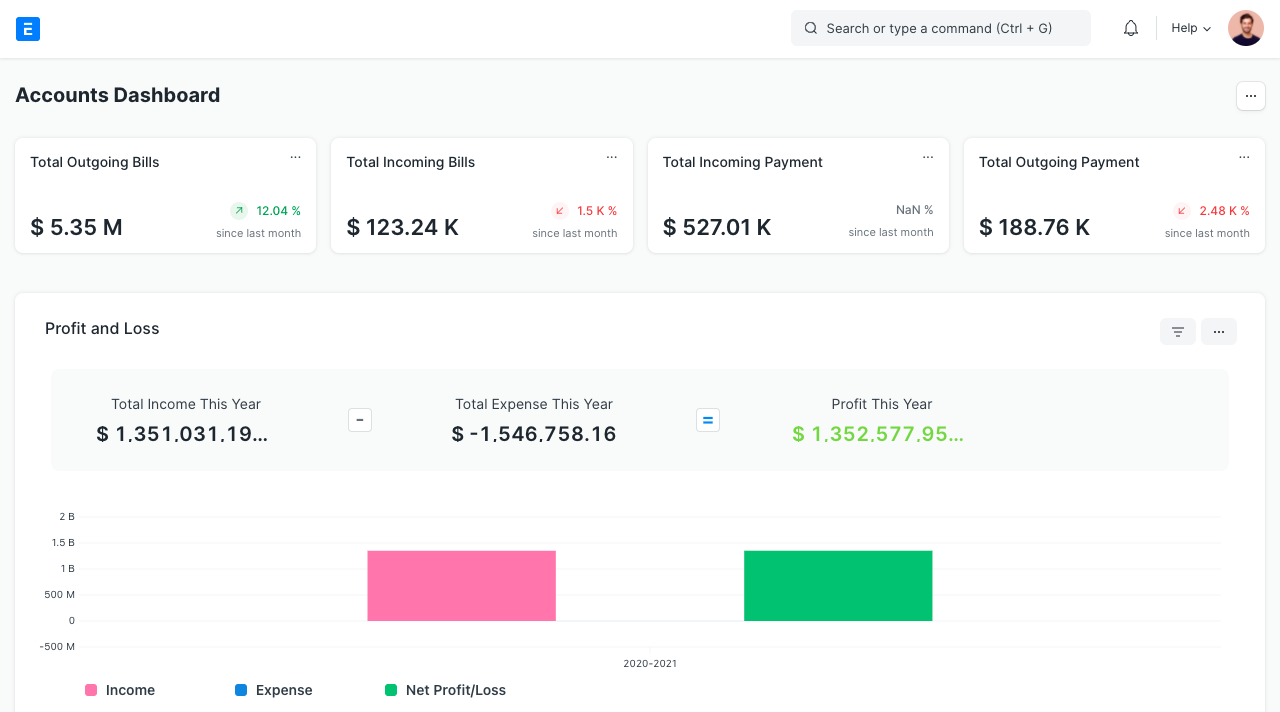10 Best ERP Payroll Software Shortlist
Here's my pick of the 10 best software from the 22 tools reviewed.
Our one-on-one guidance will help you find the perfect fit.
ERP payroll software is a great tool to help you automate payroll processing and ensure compliance. It reduces errors, saves time, and simplifies tax calculations. However, choosing the right ERP payroll software is tough with so many options out there.
Using my extensive experience in financial management and years of experience using various accounting and financial management tools, I tested and reviewed several options to help teams find their ideal solutions. In this guide, I will help you identify the best ERP payroll software tool to best meet your needs.
Why Trust Our Software Reviews
We’ve been testing and reviewing ERP payroll software since 2023. As experienced financial operators ourselves, we know how critical and difficult it is to make the right decision when selecting software.
We invest in deep research to help our audience make better software purchasing decisions. We’ve tested more than 2,000 tools for different finance and accounting use cases and written over 1,000 comprehensive software reviews. Learn how we stay transparent & our ERP payroll software review methodology.
Best ERP Payroll Software Summary
This comparison chart summarizes pricing details for my top ERP payroll software software selections to help you find the best software for your budget and business needs.
| Tools | Price | |
|---|---|---|
| Microsoft Dynamics 365 | From $70/user/month | Website |
| TallyPrime | From $630/user (one-time charge) | Website |
| Xledger | Pricing upon request | Website |
| Vault ERP | From $450/month | Website |
| Deltek | Pricing upon request | Website |
| Absolute ERP | Pricing upon request | Website |
| DELMIAWorks | Pricing upon request | Website |
| ERPNext | From $50/month (unlimited users) | Website |
| Wave Accounting | From $16/business/month | Website |
| Priority | Pricing upon request | Website |

Compare Software Specs Side by Side
Use our comparison chart to review and evaluate software specs side-by-side.
Compare SoftwareHow To Choose ERP Payroll Software
As you work through your own unique software selection process, keep the following points in mind:
- Integration Capabilities: ERP payroll software must integrate with your existing systems to ensure smooth data flow and avoid manual data entry. For instance, if your company uses a specific accounting software, the ERP payroll system should be able to communicate with it to automatically update financial records. This integration reduces errors and saves time, making it a crucial consideration for businesses with complex IT ecosystems.
- Scalability and Flexibility: Your chosen ERP payroll software should be able to grow with your business. As your company expands, the software should accommodate increased data volume and additional users without compromising performance. For example, a small business might start with basic payroll functions but may need advanced features like global payroll management as it grows. Ensuring the software can scale and adapt to future needs is essential for long-term investment.
- Compliance and Security: Payroll involves sensitive employee data, making compliance with local and international regulations and robust security measures non-negotiable. The software should support compliance with tax laws, labor regulations, and data protection standards like GDPR. For instance, a multinational company needs payroll software that can handle different tax regulations across countries while ensuring data security to protect against breaches.
- User Experience and Training: The software should be user-friendly to ensure high adoption rates among employees. Additionally, comprehensive training and support should be available to help users navigate the system effectively. For example, a company with a large workforce will benefit from an intuitive interface and accessible training resources, reducing the learning curve and minimizing disruptions during the transition to the new system.
- Total Cost of Ownership (TCO) and Return on Investment (ROI): Consider all costs associated with the ERP payroll software, including licensing fees, implementation costs, maintenance, and potential upgrades. Evaluate the ROI by assessing how the software will improve efficiency, reduce errors, and support business growth. For instance, a detailed cost-benefit analysis can help a company determine if the initial investment in a comprehensive ERP payroll system will lead to significant long-term savings and productivity gains.
Best ERP Payroll Software Reviews
This section provides an in-depth analysis and overview of each ERP payroll software. We will walk through each tool’s pros and cons, features, and best use cases to help you find the best payroll software.
Best for large enterprises requiring AI-enhanced ERP solutions
Microsoft Dynamics 365 is a comprehensive enterprise resource planning (ERP) solution that integrates business processes and data across various departments, including finance, human resources, supply chain, and sales.
Why I picked Microsoft Dynamics 365: I chose Microsoft Dynamics 365 for its thoughtful integration capabilities that set it apart from other ERP solutions. The platform's ability to connect different business applications, from sales and customer service to finance and supply chain management, makes it a standout choice. I believe it is best for integrated business applications because it offers a unified approach to managing diverse business processes, ensuring data consistency and operational agility.
Standout Features & Integrations
Features include a unified platform that streamlines operations by connecting various business functions—from HR and finance to supply chain and sales—under one system. This ERP solution is not only adaptable and scalable but also enhances business agility with AI-driven insights and comprehensive data integration capabilities.
Integrations include the Microsoft ecosystem, Power BI, LinkedIn, Azure, Outlook, OneDrive, SharePoint, Power Automate, and Power Apps.
Pros and cons
Pros:
- Faultless Microsoft integration
- AI-powered insights
- Comprehensive business applications
Cons:
- Requires Microsoft ecosystem
- Higher starting price
Best for SMEs requiring efficient accounting and inventory management
TallyPrime is a business management software designed for growing businesses, offering fast and powerful features to improve efficiencies. It is best for user-friendly business management due to its intuitive and consistent navigation, making it accessible even for users without an IT or accounting background.
Why I picked TallyPrime: I chose TallyPrime because of its reputation for simplicity and effectiveness in managing financial operations for small to medium-sized enterprises. Its user-friendly interface and robust functionality make it ideal for businesses looking for an all-in-one business solution. TallyPrime's ability to handle complex calculations and compliance requirements effortlessly sets it apart from other ERP payroll software.
Standout Features & Integrations
Features include strong accounting features, including inventory management, tax management, and payroll solutions. It provides insightful reports that help in making informed decisions quickly. TallyPrime is designed to simplify processes such as tax filing, payroll processing, and financial reporting, making it a versatile tool for business management.
Integrations include Microsoft Excel, Google Sheets, Zoho CRM, Salesforce, QuickBooks, SAP, Oracle, Microsoft Dynamics, FreshBooks, and Xero.
Pros and cons
Pros:
- Remote access capabilities
- Multi-user support
- Comprehensive reporting
Cons:
- Higher initial setup cost
- Limited advanced features
Xledger is a robust cloud-based ERP solution designed for organizations that demand high efficiency and automation in their financial processes. It is recognized for empowering businesses with a comprehensive suite of tools that streamline accounting and financial management.
Why I picked Xledger: I picked Xledger because it distinguishes itself with a true multi-tenant cloud architecture, ensuring all customers benefit from continuous updates and unified functionalities. Its emphasis on automating up to 75% of manual financial processes and providing real-time insights makes it an ideal choice for businesses looking to enhance productivity and financial transparency.
Standout Features & Integrations
Features include advanced BI tools that deliver in-depth insights across financial operations and a unified cloud structure that supports real-time data accessibility from anywhere.
Moreover, Xledger offers a highly automated finance system that reduces manual workload significantly, which is a major benefit for any finance team.
Integrations include Microsoft Dynamics 365, Salesforce, SAP, Oracle, QuickBooks, Xero, Sage, NetSuite, FreshBooks, and Zoho Books.
Pros and cons
Pros:
- True cloud multi-tenant architecture
- Strong financial insights
- High degree of process automation
Cons:
- Limited customization options
- May require training for new users
Vault ERP is a comprehensive tool designed to streamline and organize various business processes. It offers a unified platform to manage different aspects of business operations efficiently.
Why I picked Vault ERP: I chose Vault ERP because of its modular design which allows businesses to select only the components they need, making it cost-effective and scalable. This approach not only fits businesses looking for specific functionalities but also those planning to expand their ERP system as they grow. The flexibility in customization ensures that the software can evolve with the company, addressing unique challenges and requirements effectively.
Standout Features & Integrations
Features include tailored solutions through its modular structure which allows easy integration and scaling where businesses can add or remove modules as needed without disrupting their existing system. The software is designed to work with various industries, supporting a wide range of business processes from finance and HR to project management and operations.
Integrations include tools such as Microsoft Office 365, Google Workspace, Slack, Salesforce, QuickBooks, Xero, Shopify, WooCommerce, PayPal, and Stripe.
Pros and cons
Pros:
- Customizable workflows
- Real-time analytics
- Comprehensive process management
Cons:
- May require training
- Slight learning curve
Deltek offers specialized ERP solutions that focus on project-based businesses, integrating essential functions like project management, HR, and payroll within a single framework.
Why I picked Deltek: I chose Deltek for its specialized focus on project-based business solutions, which sets it apart from other ERP systems. Deltek's ability to cater to the unique needs of industries like government contracting, architecture, and engineering makes it the best for project-based business solutions.
Standout Features & Integrations
Features include project accounting, resource management, and compliance tracking—all crucial for managing intricate projects efficiently. The software excels in integrating project data with financial and HR processes to enhance decision-making and operational control.
Integrations include tools such as Microsoft Project, QuickBooks, Salesforce, SAP, Oracle, IBM, Adobe, Google Workspace, Slack, and Trello.
Pros and cons
Pros:
- Integrates various business functions
- Comprehensive regulatory compliance
- Tailored for project-based industries
Cons:
- May be complex for non-project-based needs
- Pricing not transparent
Absolute ERP is a cloud-based enterprise resource planning tool tailored for manufacturing industries, integrating departments from finance to CRM with essential functionalities.
Why I picked Absolute ERP: I chose Absolute ERP for its comprehensive suite of features designed specifically for manufacturing processes. Its cloud-based nature ensures real-time data accessibility, which is crucial for dynamic business environments. What sets it apart is its integration capability, connecting various business operations seamlessly within one platform, which simplifies the management process significantly.
Standout Features & Integrations
Features include real-time tracking, inventory management, and customer relationship management. It effectively manages the entire manufacturing process, from procurement to product delivery, ensuring streamlined operations. Integrations include popular tools for CRM, HR, sales, and finance, enhancing its utility for comprehensive business management.
Integrations include Salesforce, QuickBooks, Microsoft Dynamics, Slack, Trello, Asana, Zendesk, HubSpot, Mailchimp, and Dropbox.
Pros and cons
Pros:
- Scalable and flexible
- Comprehensive CRM integration
- Real-time data access
Cons:
- Potentially complex for small businesses
- May require customization
Best for mid-market manufacturers needing shop-floor-focused ERP software
DELMIAWorks is a comprehensive ERP software tailored for the manufacturing industry, providing end-to-end process integration from the shop floor to top-floor management. It is designed to streamline HR processes and improve efficiency within manufacturing operations.
Why I picked DELMIAWorks: I picked DELMIAWorks for its unique shop floor-first approach, which prioritizes manufacturing operations to ensure that the entire production process is tightly integrated with business functions. This focus is particularly beneficial for mid-market manufacturers who need precise control and visibility over their operations. Its industry-specific functionality distinguishes it from more generalized ERP solutions, making it ideal for companies with complex manufacturing needs.
Standout Features & Integrations
Features include real-time visibility into production, comprehensive tracking of work-in-process, and robust material requirements planning. These DELMIAWorks features are designed to optimize operational efficiency, improve product quality, and reduce costs.
Integrations include tools such as SolidWorks, 3DEXPERIENCE Platform, Microsoft Office 365, QuickBooks, SAP, Oracle, Salesforce, ADP, Kronos, and Workday.
Pros and cons
Pros:
- Employee self-service portal
- Tailored for manufacturing
- Comprehensive HR modules
Cons:
- Limited to the manufacturing sector
- Requires specialized training
ERPNext is an open-source ERP payroll software providing comprehensive payroll processing, compliance, and employee management features. As an open-source cloud ERP software, ERPNext offers a range of features and is constantly updated. It is a popular choice for businesses looking for a comprehensive and cost-effective ERP solution.
Why I picked ERPNext: I chose ERPNext for its extensive customization options and adaptive features. Its open-source nature allows for extensive customization and flexibility, which is a significant advantage over other ERP systems. The ability to access and modify the source code for free is particularly beneficial for businesses with specific needs. Additionally, ERPNext is continuously updated and improved by a global community of developers, ensuring it stays current and robust.
Standout Features & Integrations
Features include full-fledged accounting module, HR and payroll, and other tools. It allows you to define salary structures with various components like basic salary, allowances, and deductions, and automate the payroll process, including salary slips generation, tax calculations, and direct bank transfers.
The payroll system is tightly integrated with leave and attendance modules, making it easier to calculate salaries based on attendance. ERPNext also provides compliance management for various statutory requirements, configurable as per local regulations. The clean and straightforward user interface is easy to navigate for non-technical users.
Integrations include Google Calendar, Google Contacts, Google Drive, Dropbox, Slack, Shopify, WooCommerce, PayPal, Stripe, and QuickBooks.
Pros and cons
Pros:
- Comprehensive feature set
- Highly customizable
- Open-source
Cons:
- While customizable, might require more technical know-how for deeper modifications
- Straightforward to use but the UI/UX may not be as polished as other software options
Wave Accounting is a comprehensive financial management tool designed specifically for small businesses. It offers features such as invoicing, payments, accounting, and payroll, making it an all-in-one solution for managing business finances.
Why I picked Wave Accounting: I chose Wave Accounting for its strong emphasis on simplicity and cost-effectiveness, tailored specifically for small business owners. What makes it stand out in the crowded ERP and payroll software market is its commitment to providing a comprehensive suite of tools—including accounting, invoicing, and payroll.
Standout Features & Integrations
Features include simplified financial management, such as easy invoicing, faultless expense tracking, and straightforward payroll processing. The platform supports direct integration with bank accounts for real-time transaction updates, which greatly reduces manual data entry and helps keep financial records up-to-date effortlessly
Integrations include tools such as PayPal, Stripe, QuickBooks, Google Sheets, Zapier, Shopify, Etsy, Squarespace, WooCommerce, and Mailchimp.
Pros and cons
Pros:
- User-friendly interface
- Integrated invoicing and payments
- Free accounting software
Cons:
- Payroll services only available in the US and Canada
- No inventory management
Priority Software offers a versatile ERP solution designed to enhance operational efficiency across various industries. This cloud-based platform is especially agile and scalable, making it suitable for businesses looking to optimize their growth and adaptability.
Why I picked Priority Software: I chose Priority Software for its cloud ERP capabilities, which stand out due to its flexibility and scalability. The platform's ability to swiftly adapt to new business models and market conditions makes it ideal for dynamic business environments. I believe it is best for agile, scalable cloud ERP because it offers a highly secure, full SaaS cloud ERP platform powered by AWS, ensuring both flexibility and security.
Standout Features & Integrations
Features include real-time financial visibility, streamlined sales processes, and advanced supply chain management, all designed to enhance operational efficiency and decision-making.
Integrations include Salesforce, Microsoft Dynamics, QuickBooks, SAP, Oracle, Google Workspace, Microsoft Office 365, Shopify, Magento, and WooCommerce.
Pros and cons
Pros:
- Highly customizable
- Real-time data accessibility
- Advanced technological integration
Cons:
- Potential for integration challenges
- Complexity for smaller businesses
Other ERP Payroll Software
Below is a list of additional ERP payroll software that we shortlisted, but did not make it to the top list. Definitely worth checking them out.
- Odoo
Best for modular, open-source ERP payroll customization
- TCP
Best for integration of ERP, HCM, and payroll systems
- Xero
Best for small business accounting
- Remote
Best for managing global payroll
- Rippling
Best for integrated HR and IT management
- Sage Intacct
Best for advanced financial capabilities
- Acumatica
Best for cloud-based payroll management
- NetSuite
Best for comprehensive business management
- MRPeasy
Best for small manufacturing businesses
- FreshBooks
Best for freelancers and small businesses
- Oracle NetSuite
Best for scalable enterprise solutions
- QuickBooks
Best for user-friendly interface
Related ERP Software Reviews
If you still haven't found what you're looking for here check out these tools closely related to ERP software, that we've tested and evaluated.
- Accounting Software
- POS Systems
- Billing Software
- Payroll Services
- Merchant Account Services
- Inventory Management Software
ERP Payroll Software Selection Criteria
Selecting ERP payroll software involves evaluating its functionality and how well it meets specific use cases that matter most to your business. The criteria relate to software buyer needs, addressing pain points, and ensuring the software is fit for its intended use. As an expert who has personally tried and researched these tools, I focus on the following criteria:
Core Functionality: 25% of Total Weighting Score
- Automates payroll calculations, payroll tax withholdings, and direct deposits
- Adherence to local, state, and federal regulations
- Employee access to pay stubs, tax forms, and personal information
- Integrates with time clocks, HR tools, attendance systems, and other add-ons
- Provides detailed payroll reports and insights
Additional Standout Features: 25% of Total Weighting Score
- Offer extensive customization options for unique business needs
- Integration with other ERP modules and third-party applications
- Availability of mobile apps for on-the-go payroll management
- Utilization of AI for predictive analytics and automated workflows
- Ability to scale with the growth of the business
Usability: 10% of Total Weighting Score
- User-friendly design that simplifies navigation and task completion
- Easy configuration of user roles and permissions
- Real-time data visualization and customizable dashboards
- Simplifies scheduling and task management
Onboarding: 10% of Total Weighting Score
- Availability of comprehensive training materials
- Guided tours to help users understand features
- Pre-built templates for quick setup
- Supportive resources for real-time assistance and learning
Customer Support: 10% of Total Weighting Score
- Availability of round-the-clock customer service
- Support through phone, email, and live chat
- Extensive documentation and FAQs
- Personalized support for complex issues
Value For Money: 10% of Total Weighting Score
- Clear and straightforward pricing models
- Evaluation of features offered relative to the price
- Availability of different pricing tiers to suit various business sizes
- Option to test the software before committing
Customer Reviews: 10% of Total Weighting Score
- High ratings and positive feedback from users
- Reviews highlighting the effectiveness of key features
- Positive feedback on customer support experiences
- Reviews emphasizing the software's ease of use and learning curve
Trends In ERP Payroll Software
ERP payroll software is evolving rapidly. Here are some key trends to watch for as you shop for a new tool.
- AI and Machine Learning Integration: AI and machine learning are being integrated into ERP payroll systems. These technologies help automate complex payroll processes and improve accuracy. This trend is important for reducing human error and saving time.
- Cloud-Based Solutions: Cloud-based ERP payroll software is gaining popularity. It offers flexibility and remote access, which is crucial for modern businesses. This trend supports the growing need for remote work capabilities.
- Mobile Accessibility: Mobile accessibility is becoming a standard feature in ERP payroll software. Employees can now access their payroll information via mobile apps. This trend enhances convenience and employee satisfaction.
- Enhanced Data Security: Enhanced data security measures are being implemented in ERP payroll systems. With increasing cyber threats, robust security protocols are essential. This trend is vital for protecting sensitive payroll data.
- Real-Time Analytics: Real-time analytics are being incorporated into ERP payroll software. This allows businesses to make data-driven decisions quickly. This trend is significant for improving operational efficiency.
The landscape of ERP payroll software is swiftly transforming, propelled by advancements like AI integration, cloud-based solutions, and enhanced security measures. These developments are not just enhancing operational efficiency but are reshaping how businesses manage payroll—making processes more accurate, flexible, and secure. As these systems become more integrated with real-time analytics and mobile accessibility, the opportunity for on-the-go decision-making and employee engagement increases. Moving forward, the challenge will be to harness these technologies in a way that not only streamlines payroll processes but also safeguards against the evolving landscape of cyber threats.
What Is ERP Payroll Software?
ERP payroll software is a tool that integrates payroll processing with other business functions within an enterprise resource planning (ERP) system. It is used by HR departments, payroll administrators, and finance teams to manage employee compensation, tax calculations, and compliance with labor laws. The primary purpose is to ensure accurate and timely payroll processing, reduce manual errors, and streamline payroll-related tasks.
ERP payroll software typically includes components such as employee data management, payroll calculation, tax management, benefits administration, and reporting. These components work together to automate payroll processes, maintain compliance, and provide insights into payroll expenses.
Features Of ERP Payroll Software
When choosing ERP payroll software, it's important to understand the key features that will help manage payroll processes efficiently. Here are the most important features to look for:
- Automated Payroll Processing: This feature ensures that payroll calculations are done automatically, reducing the risk of errors and saving time.
- Tax Management: The software should handle tax calculations and filings, ensuring compliance with local, state, and federal regulations.
- Direct Deposit: This allows employees to receive their pay directly into their bank accounts, providing convenience and security.
- Employee Self-Service: Employees can access their payroll information, such as pay stubs and tax forms, without needing to contact HR.
- Time and Attendance Tracking: Integrating time and attendance data helps in accurate payroll calculations and reduces manual entry errors.
- Benefits Administration: Managing employee benefits within the payroll system ensures that deductions and contributions are accurately reflected in payroll.
- Reporting and Analytics: The ability to generate detailed payroll reports helps in making informed business decisions and maintaining transparency.
- Compliance Management: The software should stay updated with the latest labor laws and regulations to ensure the business remains compliant for things such as local taxes.
- Scalability: The software should be able to grow with the business, handling an increasing number of employees and more complex payroll needs.
- Integration Capabilities: The ability to integrate with other business systems, such as HR software and accounting software, ensures faultless data flow and reduces duplication of efforts. Easily oversee benefits management, time off, online payrolls, paychecks, and other payroll tools and hr solution features.
Choosing the right ERP payroll software with these features will help manage payroll processes more effectively for small, large, and mid-sized businesses and ensure compliance with regulations.
Benefits Of ERP Payroll Software
Enterprise Resource Planning (ERP) payroll software is a powerful tool that integrates payroll functions with other business processes, providing a comprehensive solution for managing employee compensation in-house. This software offers numerous advantages for organizations looking to streamline their payroll operations and improve overall efficiency. Below are five main benefits of ERP payroll software for users and organizations.
- Increased Efficiency: By automating payroll processes, ERP payroll software reduces the time and effort required to manage employee compensation, allowing HR teams to focus on more strategic tasks.
- Improved Accuracy: The software minimizes human errors in payroll calculations, ensuring that employees are paid correctly and on time, which enhances employee satisfaction and reduces the risk of compliance issues.
- Enhanced Data Security: ERP payroll systems offer robust security features to protect sensitive employee information, safeguarding against data breaches and ensuring compliance with data protection regulations.
- Comprehensive Reporting: The software provides detailed reports and analytics on payroll data, helping organizations make informed decisions and maintain transparency in financial operations.
- Scalability: ERP payroll software can easily scale with the growth of the organization, accommodating an increasing number of employees and more complex payroll requirements without significant additional costs.
Implementing ERP payroll software can transform the way organizations handle and run payroll, leading to more efficient, accurate, and secure payroll management. This not only benefits the HR department but also contributes to the overall success and growth of the business whether large businesses or mid-sized
Costs & Pricing Of ERP Payroll Software
When considering ERP payroll software, it's essential to understand the various pricing plans and what each plan offers. ERP payroll software can significantly streamline payroll processes, reduce errors, and ensure compliance with tax regulations. However, the costs can vary widely based on the features, number of users, and the specific needs of your business. Below, we provide a detailed overview of different pricing plans available for ERP payroll software, including a free option.
Plan Comparison Table for ERP Payroll Software
| Plan Type | Average Price | Common Features |
| Free | $0 | Basic payroll processing, employee self-service, and limited support |
| Basic | $17/month + $4/employee | Payroll processing, direct deposit, printable W-2s, setup and expert support |
| Core | $45/month + $6/employee | Full-service payroll, unlimited payroll runs, tax calculations, and employee self-service |
| Premium | $80/month + $8/employee | Same-day direct deposit, mobile time tracking, 24/7 support, and HR support center |
| Enterprise | $1,740 - $9,330/month | Advanced payroll features, multi-state payroll, compliance management, and dedicated support |
When selecting an ERP payroll software plan, consider the size of your business, the complexity of your payroll needs, and the level of support required. Each plan offers different features and pricing, so choose the one that best aligns with your business requirements.
ERP Payroll Software FAQs
Here are some commonly asked questions I get asked about ERP payroll software:
Can ERP payroll software handle multi-state or international payroll?
Yes, many ERP payroll software solutions are designed to handle multi-state and international payroll. These systems can manage different tax regulations, currencies, and labor laws, making it easier for businesses with a geographically dispersed workforce to maintain compliance and streamline payroll processes.
Is ERP payroll software scalable for growing businesses?
ERP payroll software is typically scalable, allowing businesses to add more employees and expand their operations without significant changes to the system. This scalability ensures that the software can grow with the business, accommodating increased payroll processing needs and additional functionalities as required.
How secure is ERP payroll software?
Security is a critical aspect of ERP payroll software. Most reputable solutions offer robust security features such as data encryption, user authentication, and access controls to protect sensitive employee information. Regular updates and compliance with industry standards also help ensure the security of the payroll data.
What kind of support and training is available for ERP payroll software?
Support and training options vary by provider but generally include online resources, user manuals, webinars, and customer support services. Some providers also offer on-site training and implementation assistance to help businesses get the most out of their ERP payroll software.
How much does ERP payroll software cost?
The cost of ERP payroll software can vary widely depending on the features, number of users, and level of support required. Pricing models may include one-time licensing fees, subscription-based plans, or a combination of both. It is essential to evaluate the total cost of ownership, including any additional fees for updates, support, and training, when selecting a solution.
What's Next?
Ready to compound your abilities as a finance professional? Subscribe to our newsletter for expert advice, guides, and insights from finance leaders shaping the tech industry.





















